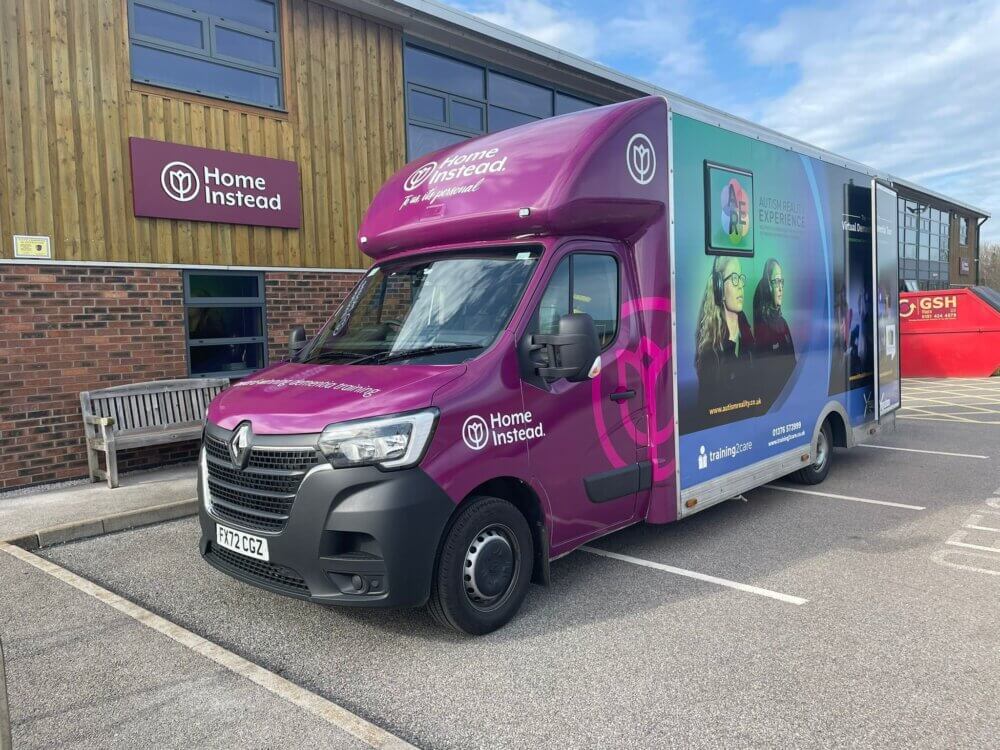Stepping into the shoes of someone with dementia with Training2Care’s Dementia Bus

Replicating dementia for the public with Training 2Cares Dementia Bus
Seeing a loved one face the challenges of dementia can be tough, and it’s only natural to do whatever you can to help. Doing your research on the condition is a good place to start. But even with reams of information and the latest research findings, how can you really empathise with someone experiencing cognitive decline? We’ve given people the chance to step into the shoes of someone with dementia, thanks to our partnership with Training2Care and its Virtual Dementia Tour Mobile, which is a bus adapted as an educational setting.
The experience provided by the mobile is a scientifically and medically proven way of replicating dementia. Those who undergo it begin with gearing up: goggles, headphones and spiky insoles. They’re then asked to perform various tasks, but with a twist. Distorted vision, loud noises and sensory overload all recreate what it’s like to have dementia. Suddenly, those everyday tasks we take for granted aren’t so simple. It’s no surprise that some people are reduced to tears when they undergo the experience and see just how tough life is for their loved one.
Training2Care has a Home Instead branded Virtual Dementia Tour Bus, paying tribute to Home Instead’s award-winning dementia care. The mobile has been a key part of events run by Home Instead franchises across the UK, helping boost awareness and understanding of dementia within local communities.
Home Instead Dartford is one franchise that used the bus in an event. Owner, Christina Uppenkamp, says: “As an advocate for dementia care, I firmly believe that the Virtual Dementia Tour offers a unique experience crucial to understanding dementia from a first-person perspective. This immersive experience helps bridge the gap between those living with the condition and their loved ones, giving them a deeper understanding of the challenges they face.”
The Virtual Dementia Tour Bus even caught the BBC’s attention. Morning Live was keen to feature it in a piece on dementia. Presenter Martel Maxwell had the chance to undergo the dementia experience along with two of our Care Professionals. Having seen a family member live with dementia, Maxwell got emotional realising what her father had to live through in the final years of his life.
It’s one thing to raise awareness of dementia. But to provide first-hand experience of what it’s like to live with the condition is what really helps people sympathise. It means they can understand why the older person in front of them in the supermarket queue might be struggling with change.
We’ve got a long way to go before our local communities are truly dementia-friendly, but things are certainly changing, and we’re delighted to be part of the movement.